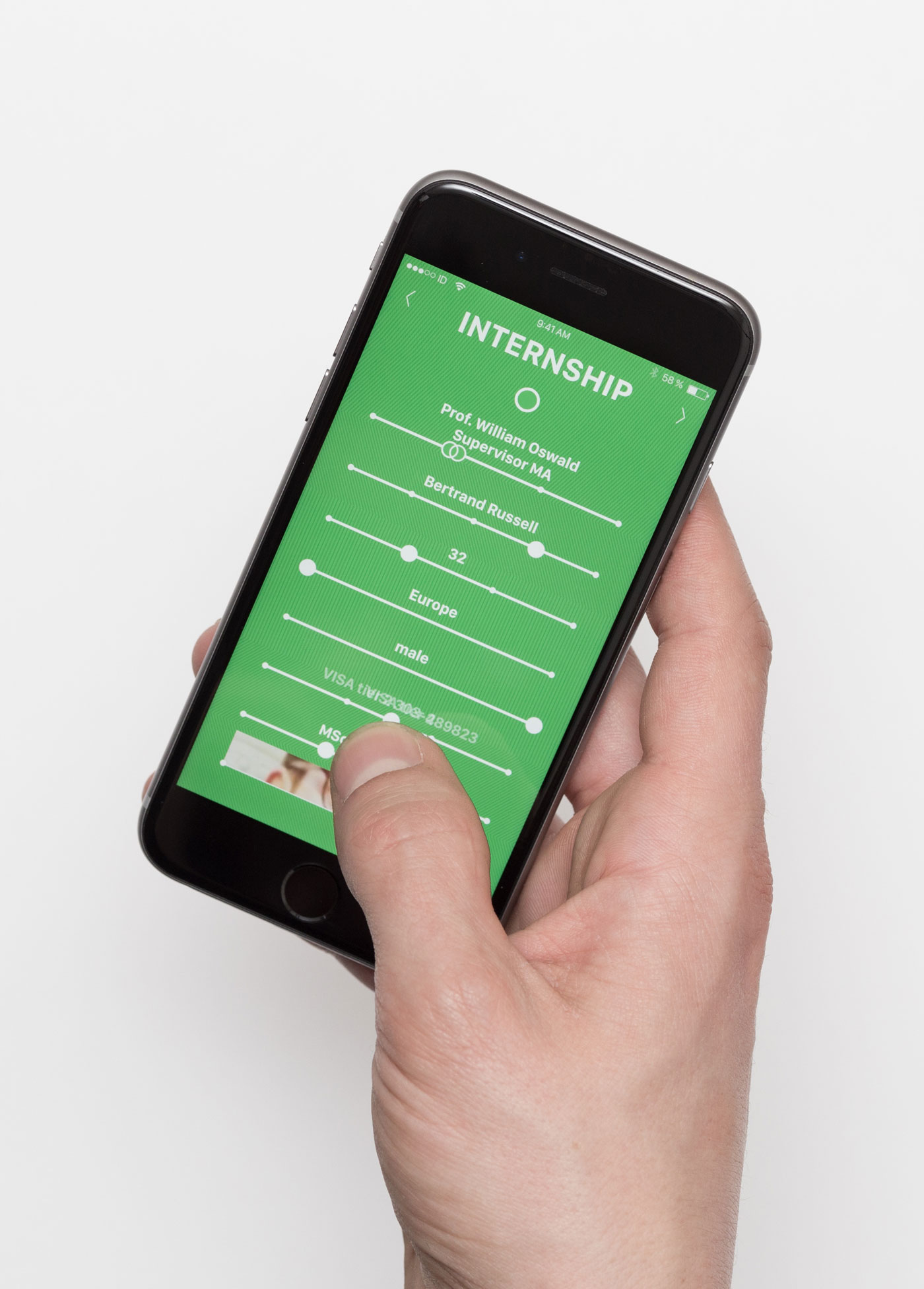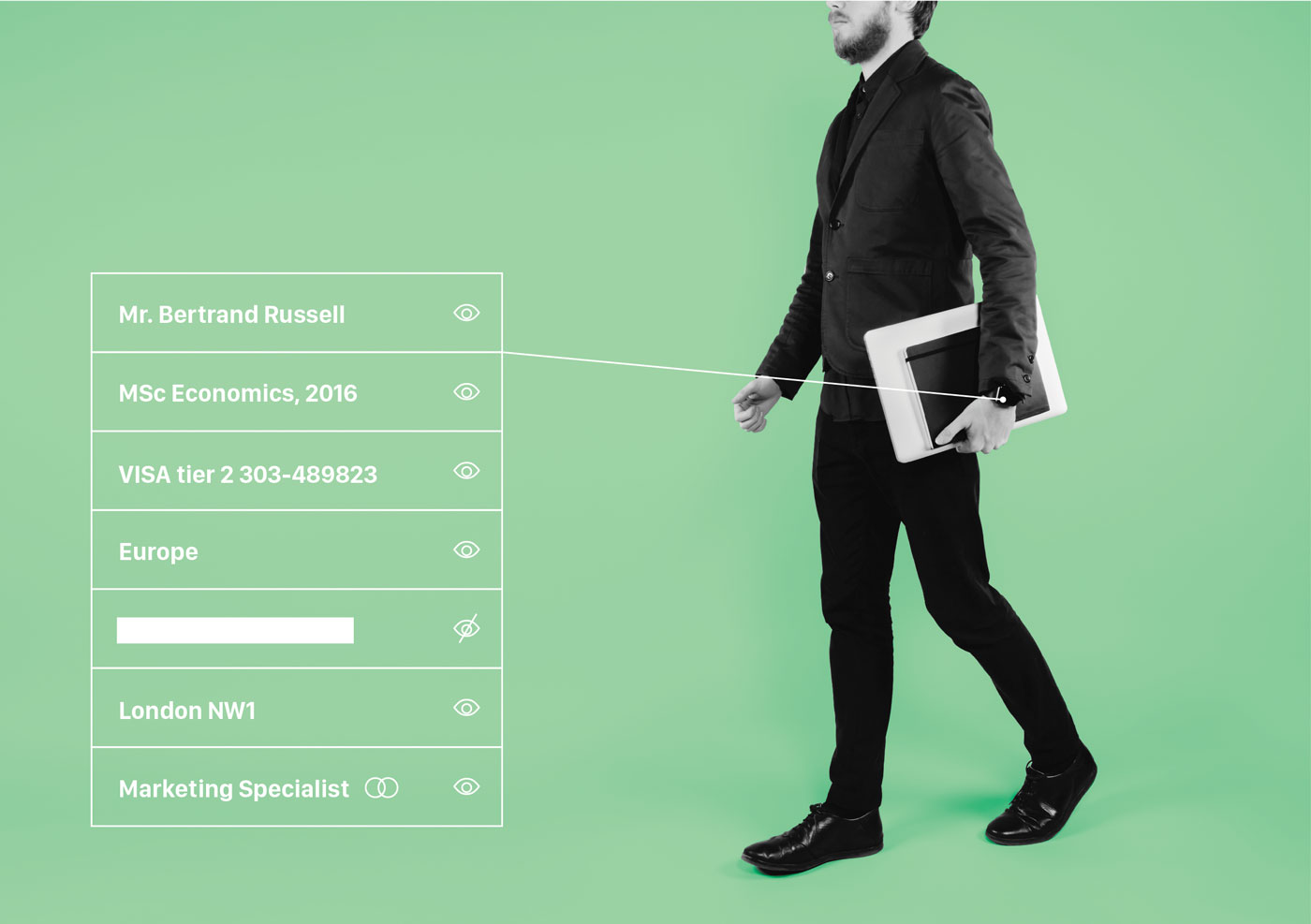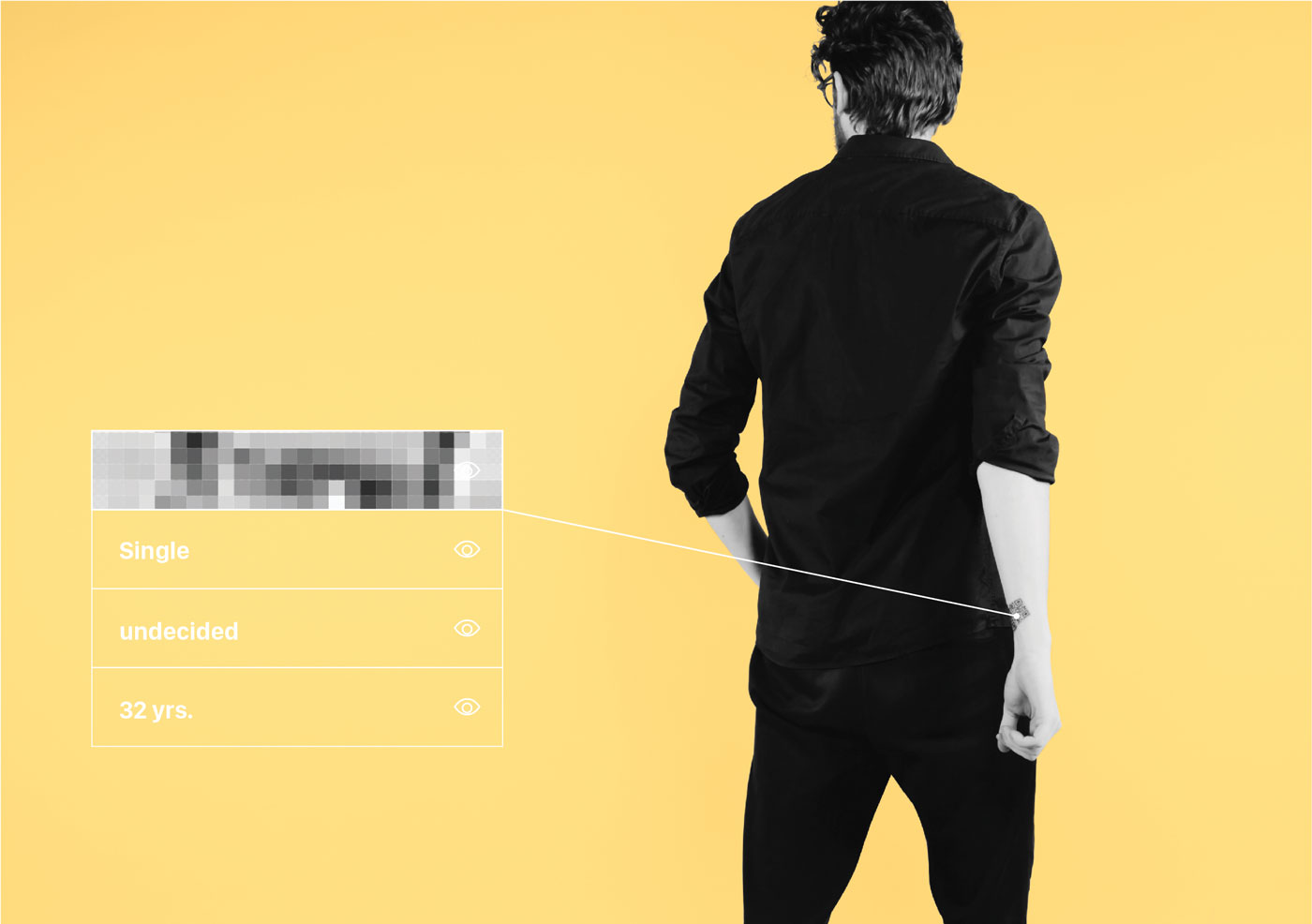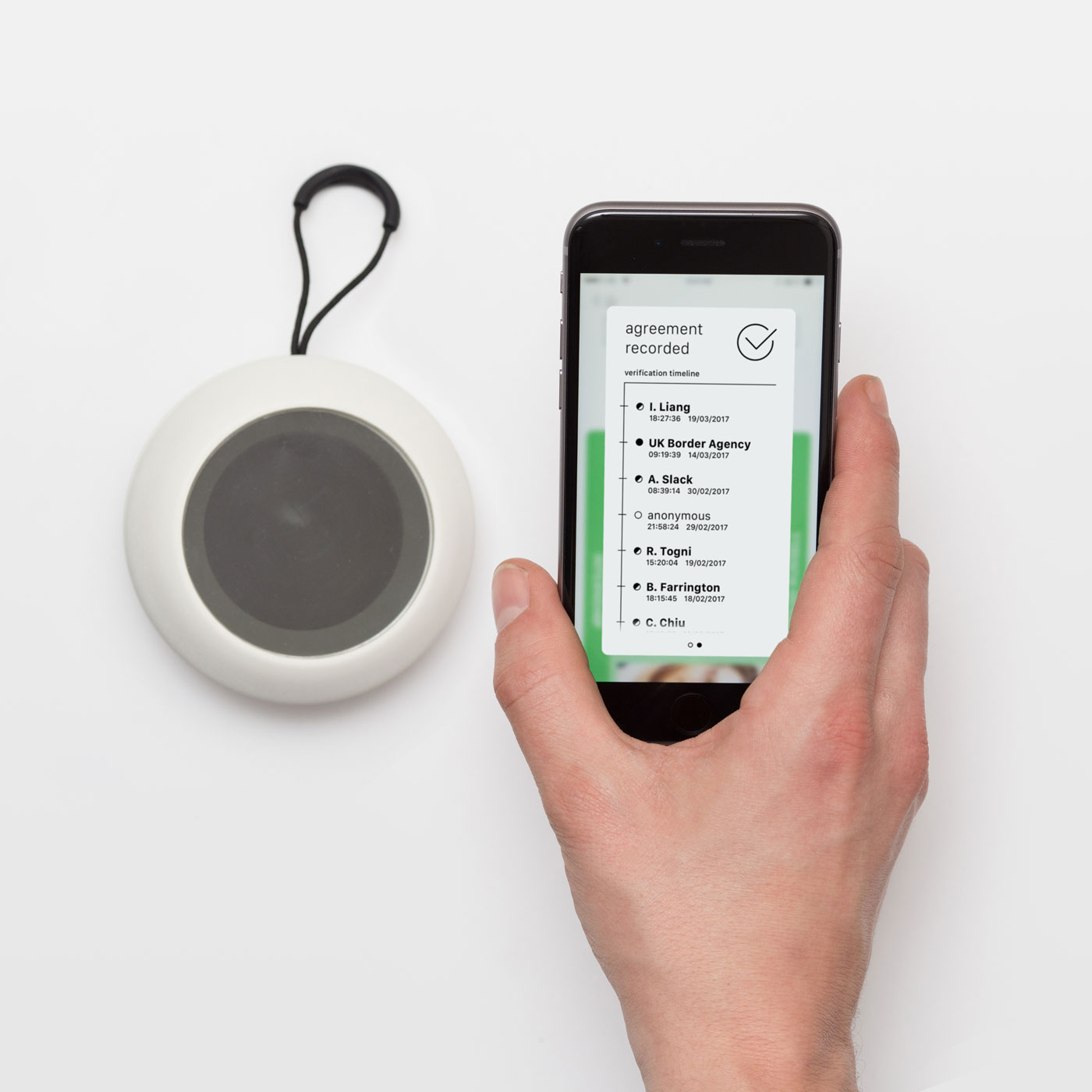How might individuals affirm their identities and their dynamic representation?


Overview
Bridge sketches a vision of mechanisms for individuals to curate dynamic digital identities and build trustworthy networks of relationships around them. The project embraces a notion that identity interactions in the street or online should not only be built to establish trust, but allow for fluid multi-pseudonymity and self expression.
Central to enabling this is a decentralised identity wallet allowing users to self-attest claims on device and collect verifiable credentials from various issuers. These can be used to dynamically respond to requests from verifiers or otherwise curate contextual presentations through an identity ‘mixing desk’ interface by selectively disclosing claims from multiple sources or transforming their format with overlays according to the intended privacy and formality of the interaction.
A companion device allows peers to document a network of relationships that endorse any self-attested claims or overlays. With physiological private keys using a hands unique vein patterns, mutual public key exchange and signing ceremonies become an accessible gesture that presupposes proximity. Each party attesting to the identity information becomes a strand in a web of trust, embodying the idea that your identity is built not given and affirmed through interaction.
Info
Foundational Research
UX Framework Development
Interaction Design
Prototyping
Speculative Design
Year
2017
Collaboration
Ivy Liang, Andrew Slack, Reto Togni







“When I applied for an Italian visa, they didn’t trust that I am capable to stay in Italy so they asked for my Dad’s ID and bank details as well. It’s like my identity is connected to others”
Ya-Ju Chan, International student in MilanTangible frameworks for participatory action research
Approach
The project incorporated a broad research phase exploring multiform pressures on identities in a post-Westphalian context, vulnerable demographics and virtual networked social spaces, including workshops with experts in cryptography and crisis management, and individuals in identity limbo.
Insights from this research informed a series of sensemaking frameworks that articulated a layered model of identity and how the architectures of traditional identity systems are mismatched to how people actually live. In subsequent action research we used this and other tangible prototype frameworks built from folded paper that workshop participants could manipulate, to better understand how people seek to manipulate identity credentials, leading to the creation a framework for interactions such as the identity wallet’s ‘mixing desk’ through further iteration.
Insights from this research informed a series of sensemaking frameworks that articulated a layered model of identity and how the architectures of traditional identity systems are mismatched to how people actually live. In subsequent action research we used this and other tangible prototype frameworks built from folded paper that workshop participants could manipulate, to better understand how people seek to manipulate identity credentials, leading to the creation a framework for interactions such as the identity wallet’s ‘mixing desk’ through further iteration.